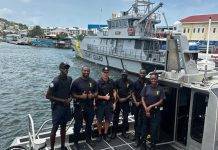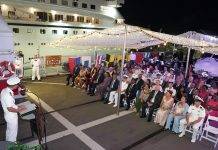Through time we have sought destinations away from home for our leisure. In creating traditions, annual family vacations were often planned and enjoyed to bond, enhance the love for one another and to have joyful experiences. Experiences to last a lifetime.
In fact through such vacations permitted exposure to other cultures and religions bringing a vast knowledge and experience that would permit us to better partake in the world. Throughout our youth, many of us were rewarded with travel abroad after having completed a school year successfully.
Travel was for a longtime associated with, pleasure, adventure, and mere enhancement of personal wellbeing. Travel, however, is undertaken with greater frequency for business. Business growth and so economic development have been contingent on expansion of market opportunities exceeding borders. Whilst telecommunications now enable business to be undertaken anywhere, anytime, in a global environment this means of communication has not mitigated the importance of travel.
So travel is done by means of vehicular transport (over continents having such connections), by train, ship or aircraft. In an article written by Chris Isidore for CNN money[i] the many means of travel were compared based on the number of fatalities over a five-year period. It was established that scale most dangerous to least dangerous was represented as follows: Motorcycles, cars and trucks, trains, metros/subways, busses, planes.
One may assume that these figures were based on the fatalities caused during a crash of such transportation means. However, anno 2016 we should question if the fatalities which occur in and around airports, train stations and metro stations should be considered as fatalities related to the transportation means being sought. Terrorism attacks have in a short period of time made most means of mass transportation to be the most dangerous means of transportation.
The utilization of aircrafts, the bombing of metro stations and recent bombings in the departure hall of the Brussels airport are just some of the examples in which the use of certain transportation means are targeted, simply because of the greater number of people that are transported by such means at any given time.
For years we believed that travel by air or by train were by far the safest means of transportation. That belief is now rapidly dissipating. The use of such transportation means now may make us sitting ducks in an enclosed pond, highly vulnerable to malicious attacks. The open borders in Europe once seen as the means to attain a European Union, a higher form of economic development through trade and free movement of people, may now be the cause of its vulnerability to terrorist attacks.
It is suggested that many more attacks are in the planning and probably execution phase, cautioning travel to Europe. Yet, we have seen that acts of terrorism are not confined to any area, continent or country. In fact its non-discriminatory nature is the reason why no country can become complacent or deem itself not a target. With that being said would it be conceivable that travelers would find themselves playing Russian roulette with their lives every time travel by aircraft, train, metro or even by ship was ventured?
That realization may have far fetching consequences for destinations strongly dependent on tourism. How do we ensure that travel through these means remains the least dangerous means of transportation? What is required to maintain safety and security so that travel not only for business, but for leisure continues? Has St. Maarten embarked on this journey to ensure that travel to the country remains a desired and safe option?
World events as far as they may seem, can have an impact on us so it is essential that mechanisms are put in place in the country to aid in the fight against acts of terrorism. Compliance with FATF recommendations as set forth in the AML/CFT (Anti-Money Laundering /Combating the financing of terrorism) standards is a step in the right direction.
[1]http://money.cnn.com/2015/05/13/news/economy/train-plane-car-deaths/
What’s the safest way to travel May 13, 2015





























